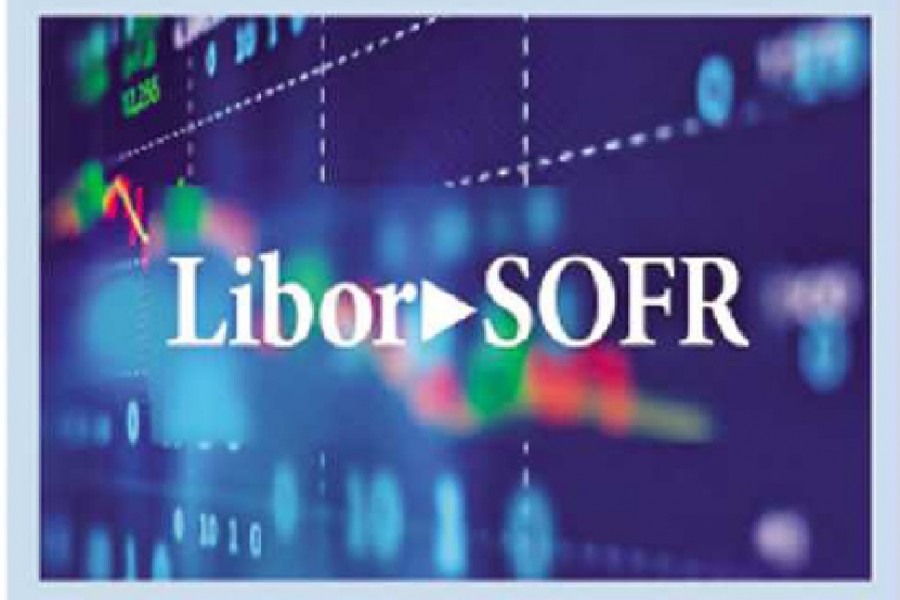The government is working out transition, prospect and risk of SOFR-based borrowing as the incumbent LIBOR-based lending will be discontinued from January 2022.
Finance ministry has asked the economic relations division (ERD) to scrutinise this transition, officials said on Saturday.
The SOFR (Secured Overnight Financing Rate), the new global benchmark for setting interest rates on commercial and consumer loans, will replace the LIBOR (London Interbank Offered Rate), introduced in 1986.
Multiple scandals and a stirring role in the financial meltdown of the Great Recession have inspired efforts to replace LIBOR worldwide.
The US markets started transitioning from LIBOR to SOFR in 2017 after the Financial Conduct Authority (FCA) announced that LIBOR was at risk of discontinuation at the end of 2021.
A senior finance ministry official said, "We have recently requested the ERD to work out the transition (process). The ERD will review the matter."
Actually, Bangladesh has nothing to do with SOFR's implementation as the global financial market has decided to transit from the current LIBOR benchmark for borrowing, said an ERD official.
"We'll just work out the transition and also find any prospect and risk factors with SOFR so that we can stay alert to the new borrowing method," he told the FE.
Multilateral donors, including the World Bank, Asian Development Bank and Asian Infrastructure Investment Bank have already reminded Bangladesh of the transition from the next year, the official mentioned.
"There is no way but to transit to SOFR from the US dollar-based LIBOR loan. So, Bangladesh has already given green signal to the WB about the transition."
Bangladesh has already borrowed billions of dollars of loans from bilateral and multilateral lenders like the WB, ADB, AIIB, Islamic Development Bank, French lender AFD and German lender Kfw.
Besides, private firms had also borrowed money from the International Finance Corporation and many more foreign lenders through the LIBOR rates.
An ERD deputy secretary said they were expecting a smooth transition as the WB assured the government of protecting the borrowers' right.
"Actually, the government is thinking of transition to SOFR and any risk involved. We hope the lenders will protect the interests of the borrowing countries," he told the FE.
"Here the ERD's committee will explore the most likely transition scenario as well as potential strategies for using SOFR to price and risk manages both financial products and funding."
"We'll also discuss its potential and the challenges faced in trying to introduce credit-sensitive alternatives to LIBOR," the bureaucrat added.
Currently, various LIBORs like daily LIBOR, weekly LIBOR, 30 days' LIBOR, three-month LIBOR, six-month LIBOR and one-year LIBOR are in force.
On the other hand, SOFR will not have this scope as this rate is set and published daily.
LIBOR is calculated based on available market data, particularly available loanable fund held by the participating banks, judgment on market data, research and prediction made by market experts.
In contrast, SOFR is determined entirely on market data believing that there is no scope or very little scope for speculation.
In fact, LIBOR is the average cost of borrowing, whereas SOFR is a risk-free rate based on treasury.
LIBOR is known as unsecured rate but SOFR is a secured rate where treasury balance is always considered as collateral.


